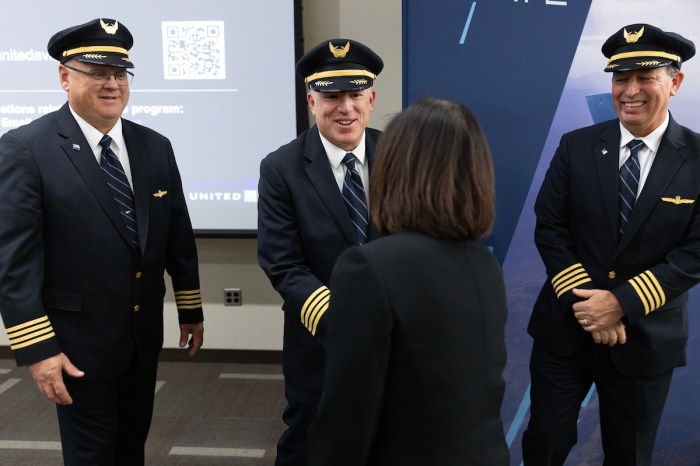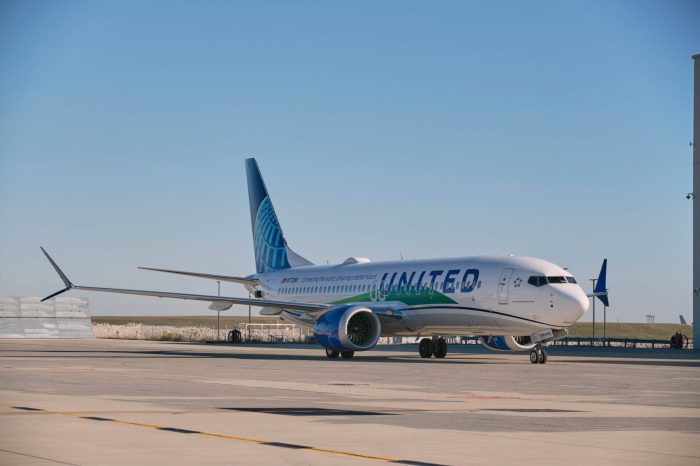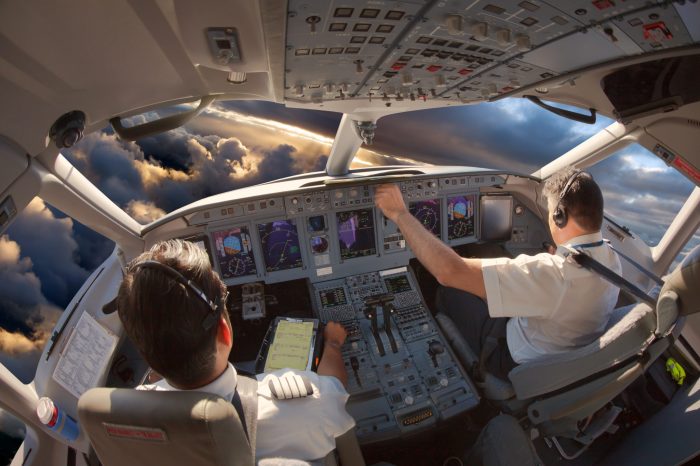The United Airlines pilot hiring process is a rigorous and competitive endeavor that attracts aspiring aviators from around the globe. This detailed guide provides an in-depth look at the application process, assessment criteria, training programs, and career progression opportunities available to those seeking to join the ranks of United’s esteemed pilots.
United Airlines, renowned for its unwavering commitment to safety and operational excellence, meticulously evaluates candidates to ensure they possess the requisite skills, knowledge, and temperament to navigate the demanding skies with precision and professionalism.
United Airlines Pilot Hiring Process Overview

The United Airlines pilot hiring process is a comprehensive and competitive multi-stage process that typically takes several months to complete. The process involves several steps, including an initial application, online assessments, a video interview, and an in-person assessment.
To be eligible to apply for a pilot position with United Airlines, candidates must meet the following requirements:
- Hold a valid commercial pilot’s license (CPL) or airline transport pilot’s license (ATPL).
- Have a minimum of 1,500 flight hours, including 500 hours of cross-country flight time.
- Be able to pass a background check and medical examination.
Application Process
Applying for a pilot position at United Airlines involves a comprehensive process that evaluates candidates based on their qualifications, experience, and fit with the company’s values and culture.
To initiate the application process, prospective pilots must submit an online application through the United Airlines website. The online application requires candidates to provide personal information, flight experience details, and supporting documentation.
Required Documents
The required documents for the application include:
- Resume
- Cover letter
- Logbook
- Medical certificate
- FAA pilot certificate
- Letters of recommendation
It is crucial for candidates to tailor their application specifically to the requirements and expectations of United Airlines. The application should highlight relevant skills, experience, and accomplishments that align with the company’s needs.
Assessment and Evaluation
United Airlines employs a rigorous assessment and evaluation process to identify the most qualified pilot candidates. This process involves a combination of aptitude tests, simulator evaluations, and interviews, designed to assess a candidate’s technical skills, cognitive abilities, and overall suitability for the role.
Aptitude Tests
Aptitude tests are used to measure a candidate’s cognitive abilities, including problem-solving, spatial reasoning, and memory. These tests are typically timed and computer-based, and candidates are given a limited amount of time to complete each section.
Simulator Evaluations, United airlines pilot hiring process
Simulator evaluations are used to assess a candidate’s piloting skills and decision-making abilities in a realistic flight environment. Candidates are placed in a flight simulator and tasked with performing a series of maneuvers and responding to various scenarios.
Interviews
Interviews are used to evaluate a candidate’s communication skills, teamwork abilities, and overall motivation for becoming a pilot. Interviews may be conducted by a panel of United Airlines personnel, including pilots, recruiters, and human resources professionals.
The assessment and evaluation process is highly competitive, and only a small percentage of candidates are ultimately selected for training. Candidates who successfully pass the assessment and evaluation process will be invited to attend United Airlines’ pilot training program.
Training and Development

United Airlines provides a comprehensive training and development program for new pilots to ensure they are well-equipped to operate safely and efficiently. The program consists of several phases, each designed to build upon the previous one and provide a solid foundation for the pilots’ careers.
Ground School
The first phase of training is ground school, where new pilots learn the theoretical knowledge and skills necessary for flying. This includes studying aerodynamics, meteorology, navigation, and aircraft systems. Pilots also participate in simulator training to gain experience in handling various aircraft scenarios.
Simulator Training
After completing ground school, pilots progress to simulator training, where they practice operating aircraft in a realistic environment. This phase allows them to develop their skills in a controlled setting before flying actual aircraft. Pilots practice various maneuvers, including takeoffs, landings, and emergency procedures.
Line-Oriented Flight Training
The final phase of training is line-oriented flight training (LOFT), where pilots fly with experienced instructors on actual aircraft. This phase focuses on developing the pilots’ decision-making skills and situational awareness. Pilots practice flying in different weather conditions and scenarios to prepare them for real-world operations.
Mentorship and Support
Throughout the training program, new pilots are provided with mentorship and support from experienced pilots and instructors. Mentors provide guidance and advice to help pilots navigate the training process and develop their skills. Additionally, the program offers resources such as flight simulators, study materials, and technical support to ensure that pilots have the necessary tools for success.
Career Progression

United Airlines offers a well-structured career progression path for its pilots, providing ample opportunities for advancement and professional growth.The airline has established a seniority system that determines the rank and responsibilities of pilots. As pilots gain experience and seniority, they can progress through various ranks, each associated with increasing levels of responsibility and compensation.
Rank and Responsibilities
The primary ranks within United Airlines’ pilot career ladder include:
- First Officer:Entry-level pilots who assist the Captain in operating the aircraft and managing flight operations.
- Captain:Senior pilots responsible for the overall command and safety of the aircraft and its passengers.
- Check Captain:Experienced Captains who evaluate and certify other pilots to ensure they meet United’s safety and operational standards.
- Training Captain:Captains responsible for providing initial and recurrent training to new and existing pilots.
- Chief Pilot:The most senior pilot within a specific base or region, responsible for overseeing all pilot operations and ensuring compliance with regulations.
Factors Influencing Career Advancement
Several factors influence career advancement and promotion at United Airlines, including:
- Seniority:Pilots with more seniority generally have priority for promotions and higher-paying assignments.
- Performance:Pilots who consistently exceed expectations in terms of safety, efficiency, and customer service are more likely to receive promotions.
- Training and Development:Pilots who actively participate in training and development programs demonstrate their commitment to professional growth and are often rewarded with advancement opportunities.
- Availability:Pilots who are willing to relocate or accept less desirable assignments may have more opportunities for promotion.
United Airlines’ career progression system provides a clear path for pilots to advance their careers and assume positions of increasing responsibility and leadership. By consistently demonstrating exceptional performance, pursuing professional development, and maintaining a positive attitude, pilots can achieve their career aspirations within the airline.
Essential Questionnaire
What are the minimum eligibility requirements to apply as a pilot with United Airlines?
To be eligible, candidates must possess a valid commercial pilot’s license (CPL), an instrument rating, and a minimum of 1,000 flight hours. Additionally, they must meet United’s specific requirements, including age, education, and medical standards.
What is the application process like?
The application process involves submitting an online application, providing supporting documentation, and undergoing a thorough screening process. Candidates who meet the initial criteria will be invited to participate in assessments, which may include aptitude tests, simulator evaluations, and interviews.
What are the key factors that United Airlines considers when evaluating candidates?
United Airlines evaluates candidates based on their technical skills, knowledge of aviation principles, decision-making abilities, problem-solving skills, and overall demeanor. The airline seeks individuals who exhibit a strong work ethic, a commitment to safety, and a passion for flying.